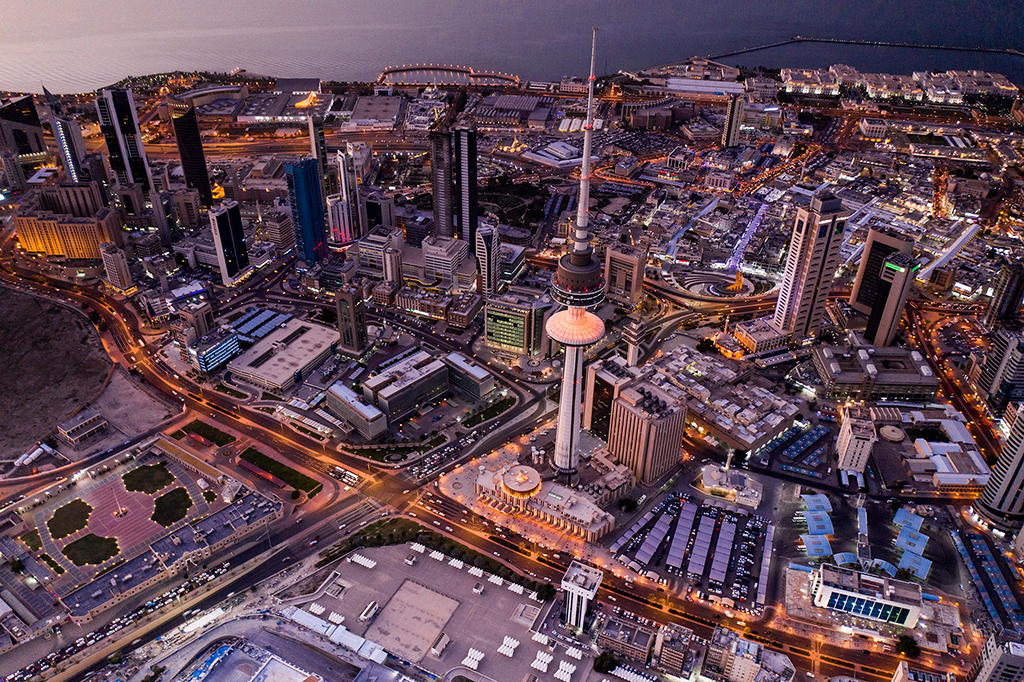By Majd Othman
KUWAIT: Kuwait recorded a 12.5 percent ($12 million) decline in the value of projects awarded in July 2022, as the value of total project awarded reached $84 million in the month. In June, projects worth $96 million were awarded, according to a report published by MEED Projects.
The report showed that Kuwait ranked fourth in GCC and sixth regionally in the list of signed project awards, while Qatar recorded the highest amount in July with $1.1 billion, followed by Saudi Arabia with $934 million. The UAE closed the top three rankings in the awarding of contracts in July, with deals worth $819 million signed.
 Maitham Al-Shakhs
Maitham Al-ShakhsSpeaking to Kuwait Times, Maitham Al-Shakhs, an independent economic researcher, analyzed the reasons behind the decline in Kuwait's project awards and its possible implications on the state economy. He pointed out the main reason for this decline is related to the political situation and disputes in the National Assembly.
"The political stalemate in the parliament is the main reason for the delay in awarding projects. If deputies had turned their attention to study and pass such important files as priorities, it would have been better than the political struggle over the issue of formalities in the nomenclature between the government and the National Assembly," he argued. "The majority of the members of the parliament did not propose any new projects for the consideration of government, and whoever says the opposite, let him show them," he said.
"The absence of major infrastructure projects in the country might also lead to a flight of international companies and investments from the country. If our neighboring countries start certain key projects, naturally these investors will go to them and Kuwait will lose out in the competition. Remember, Kuwait has envisioned several important projects, but they ended up in drawers, while other GCC countries have begun to implement their projects," Shakhs pointed out.
"Any decline in the percentage of awards is a setback for future projects, modernization programs and our development plan. We need major infrastructure projects to catch up with global markets in the race to transform Kuwait into a financial and commercial center," he said.
Gulf experience
"The Gulf experience is the best proof. When Qatar announced hosting the World Cup, the country announced several ambitious projects with a specific blueprint such as logistics, stadiums and others associated infrastructure projects. As a result, the percentage of the country's awarded contracts increased significantly. As were the cases with the UAE (Dubai Expo) and Saudi Arabia, where infrastructure development enabled the countries to host major international events today," Shakhs explained.
"When we talk about losing out in competition to our neighbors, we must also consider the possible future losses to the country in its efforts to transform into a commercial and financial center. It requires a lot of work and major projects, and any delay in planning and executing them will slow down the transformation process. I do not think that there are any gains from the drop in the percentage of projects awards," he said.
Disagreeing with the opinion aired by some quarters that a decline in Kuwait's project awards could help the government bring down the financial deficit, he said this is a negative thought. "For example, it is negative financial management and not a positive transformation when we say the percentage of salaries increased by one or two percent while the outlay of capital expenditure decreased," he said.
"Therefore, the process of implementing Kuwait's major infrastructure projects and transforming the state into a financial and commercial center is an important issue that largely depends on capital expenditure. The issue of the allocation of capital expenditure begins with legislation, as it is the responsibility of the deputies and ends with the government, as it is the executor of the projects," he concluded.











